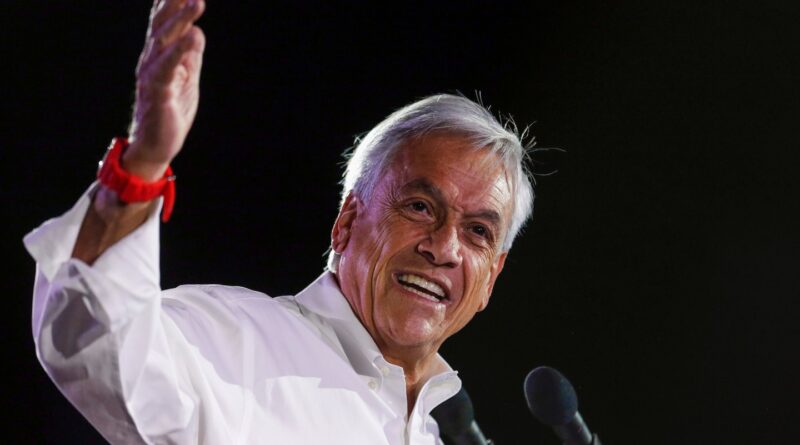Sebastián Piñera, former Chilean president and billionaire mogul, dies at 74
Mr. Piñera surged into politics portraying himself as part of a new generation of conservative leadership in a country still deeply scarred by the right-wing dictatorship of Gen. Augusto Pinochet, who ruled form 1973 to 1990 and waged a widespread “dirty war” that left thousands of perceived political opponents jailed or missing and presumed dead.
Mr. Piñera parlayed his standing as one of Chile’s richest men — with holdings including the country’s then-flagship airline LAN, the soccer team Colo-Colo and a television station — into a conservative political base that propelled him to victory in elections in 2009, taking office in 2010. Parallels were drawn with the political rise in the 1990s of Italy’s magnate-turned-prime minister Silvio Berlusconi and later as a Latin American version of former president Donald Trump.
Mr. Piñera’s first four-year term spanned a period of surging economic growth and falling inflation Chile, making the country a symbol of success for advocates of free-market policies and austerity-style fiscal controls. Mr. Piñera, although often stiff and scripted in public, gained popularity for helping Chile recover from a major earthquake in late February 2010, just 11 days before he took office, that claimed more than 500 lives and left billions of dollars in damage.
Then, in October 2010, he became the international face of Chile’s rescue of 33 miners who were trapped underground for 10 weeks — a painstaking operation that was watched by the world. “What started as a tragedy is ending as a real blessing,” Mr. Piñera told ABC News’ Diane Sawyer. “I think that the miners have given us an example of unity, of teamwork, of faith. Their families, they never lost faith.”
Banned from consecutive terms by Chile’s Constitution, Mr. Piñera spent the next four years expanding his conservative coalition and returned to office in 2018. This time, the economic climb of his first term had reached its peak and was coming down.
Protests broke out over lack of economic growth in rural areas, and Mr. Piñera deployed troops under a state of emergency declaration, leading to accusations of human rights violations.
In 2021, Mr. Piñera was impeached by the lower house of congress over allegations that he used his political influence for his family business interests, some of the holdings disclosed by leaks about offshore financial dealings and tax havens from a cache of documents known as the Pandora Papers. Chile’s Senate later voted against removing him from office.
Miguel Juan Sebastián Piñera Echenique was born Dec. 1, 1949. He spent some of his boyhood in New York, where he father served as Chilean ambassador to the United Nations.
He returned to Chile in 1955 and studied business administration at the Pontifical Catholic University of Chile and economics at Harvard University. He began building his fortune with one of the first companies to introduce credit cards to Chile. Forbes ranked his net worth this year at $2.7 billion.
He lost his first run for president in 2005 to center-left candidate Michelle Bachelet. In 2009, he defeated former president Eduardo Frei by a narrow margin.
Mr. Pinera married to Cecilia Morel in 1973 and they had four children. Complete information on survivors was not immediately known.
A statement by Chile’s president, Gabriel Boric, decree three days of national mourning.
Ana Herrero in Caracas contributed to this report.




